Sorted by date Results 1 - 25 of 40

Rare earths deal with China raises alarm over U.S. supply chain independence. As America celebrates its independence this July 4, the rare earths trade deal with China raises uncomfortable questions about how truly self-reliant the nation remains in the technologies that underpin its economic and military strength. This includes concerns raised by critical mineral experts, who caution that China's commitment to resume rare earth shipments is a double-edged sword that puts Amer...

Invokes DPA powers to bolster U.S. production of minerals essential to national security and economy. President Donald Trump has declared a national emergency and invoked Defense Production Act (DPA) authorities to fast-track U.S. production of critical minerals vital to the economy and national security. This move, enabled by expanded executive powers under the Korean War-era DPA, waives congressional funding approvals and other limitations on creating, expanding, or...

Export restrictions have already begun to affect U.S. and EU, with automotive part manufacturers making hard decisions to halt production. In April 2025, China imposed sweeping restrictions on the export of rare earth minerals and magnets, targeting sectors critical to Western economies in retaliation for renewed U.S. tariffs. Although some tariffs were later paused, China's restrictions have remained firmly in place, and the effects are being felt by automotive manufacturers...

China agrees to temporarily lift export restrictions under new trade deal with the U.S. The United States and China have agreed on a trade deal that is expected to provide some relief to American manufacturers that have been forced to scale back production due to a lack of rare earth magnets needed for automobiles, clean energy, and high-tech devices. "Our deal with China is done, subject to final approval with President Xi and me," President Trump wrote in a June 11 Truth...
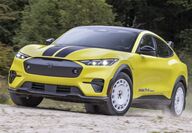
Surprise announcement of this development inspires cautious optimism. In a LinkedIn post, Charles Poon, director of electrified propulsion engineering at Ford Motor Co., announced a new lithium-manganese-rich (LMR) battery he says will be integrated into its affordable, longer-range electric vehicle lineup by the end of the decade. However, the company has yet to share key technical details. This innovation stems from intensive research and development at Ion Park, Ford's Batt...

University survey reveals gap in American critical mineral awareness, policy preferences, and supply realities. Americans want a high-tech, low-carbon future, but the problem is that most of the materials needed to build it come from somewhere else. While electric vehicles, wind turbines, and solar panels depend on lithium, cobalt, and rare earths, a new study reveals a contradiction: many people support the energy transition, yet far fewer back the domestic mining required...

Hyundai, Kia support nickel-titanium alloy tire that is flexible like rubber, stronger than steel. Reinventing the wheel is the top adage defining something as unnecessary – but not when it comes to tires. The Shape Memory Alloy Radial Technology (SMART) Tire Company, backed by Hyundai Motor and Kia, is applying NASA's space-age technology to create airless, puncture-proof, and sustainable tires for everything from bicycles to electric vehicles here on Earth. In 2023, the c...
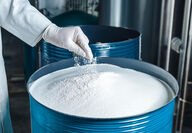
U.S. lithium production is ready to tap a massive aquifer that crosses six southern state lines. Global lithium consumption reached 180,000 metric tons in 2023, according to the United States Geological Survey, but the U.S. produces less than 1% of the world's supply. While most of the world's lithium still comes from countries like Australia, Chile, and China, the future of lithium production in the U.S. is ramping up in California, Nevada, and now Arkansas as companies like...

An expensive new risk for Western manufacturers and their investors. This past June, German chemicals giant BASF backed out of a planned $2.6 billion nickel refinery in Weda Bay, Indonesia. While the company cited changing dynamics in the global nickel market, BASF also faced calls to abandon the project from environmental and human rights groups. BASF's decision to walk away should focus the clean energy and automotive sector's attention on a new risk profile: Indonesia's... Full story

Changing how the West approaches globalism will be the key to a circular economy the whole world can get behind. The Western world has found itself in a unique crisis that has brought systemic vulnerabilities into sharp relief. An overreliance on problematic imports has been exposed (especially post-COVID) as a rat's nest of potential supply chain disruptions, global inequality, deregulation and competition-killing corporate consolidation – all while leaving the power of marke... Full story

American electric vehicle manufacturers are under pressure from the massive federal legislation aimed at creating a robust domestic value chain for several key battery minerals and rare earths. These materials are predominantly being imported for EV batteries – as well as the battery cells themselves in many cases – from problematic sources like China, the Democratic Republic of Congo, and Russia. The Inflation Reduction Act (IRA) passed by Congress in August 2022 inc...

Li-Bridge alliance unveils blueprint to build resilient US lithium battery supply chain. A wide chasm lies between where the United States is today and securing the lithium battery mineral resources and manufacturing capacity required to achieve ambitious visions of a green energy future where electric vehicles are charged with low-carbon energy. An alliance of America's national laboratories and more than 40 companies representing the entire lithium battery supply chain have...
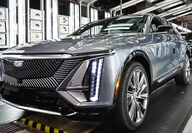
Every electric vehicle rolling off an assembly line increases the demand for graphite by an average of around 160 pounds. With more than 30 million EVs expected to hit global highways each year by 2030 and upwards of 45 million by 2045, the transition to e-mobility will require up to eight times more graphite than was mined globally during 2022. While graphite has not received the attention of other EV battery ingredients such as cobalt, lithium, and nickel, this highly... Full story

There is nearly a $1 trillion chasm between where the United States' lithium battery supply chain is today and where it needs to be by 2035 in order to build the envisioned green energy future where electric vehicles are charged with low-carbon energy. Roughly 40% of this investment will need to go toward ensuring there is a plentiful supply of cobalt, graphite, lithium, nickel, and other battery materials. Simon Moores, CEO of Benchmark Mineral Intelligence and one of the... Full story

Collaborative investment of C$1.2 billion into future battery cathode facility. Coming out of the region that will hold one of the more prominent footholds for battery-related industries, Ford Motor Company announced an investment of C$1.2 billion (US$885,660) to build a battery cathode manufacturing facility in Becancour, Quebec, for future Ford electric vehicles. Becancour is a small town along the shores of the St. Lawrence River about halfway between Montreal and Quebec...
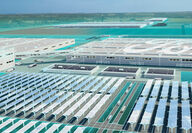
Loan will support the building of 3 Ford-SK battery plants in Kentucky and Tennessee. In another sweeping step in support of the transportation industry's e-mobility transition and domestic infrastructure for electric vehicle and battery production, the U.S. Department of Energy has committed a loan of up to $9.2 billion to BlueOval SK LLC for the construction of three manufacturing plants to produce batteries for Ford Motor Company's future Ford and Lincoln EVs. "The DOE's...

Back in 1908, when Ford Motor Company first started cranking out the Model T, the innovative automaker championed new materials, new engineering designs, and new manufacturing practices. More than a century later, automotive companies are emulating Henry Ford's strategy as they tackle the supply chain challenges of a similarly groundbreaking electric vehicle revolution. Styled these days as 'vertical integration production,' Henry Ford's idea of "a continuous, nonstop process...
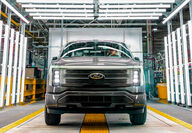
Ford Motor Company has stepped up critical metals acquisition, forging still more relationships with the likes of battery metal miners and developers and bringing the automotive manufacturer closer to its target of producing an annual run rate of two million electric vehicles globally by the end of 2026. In May, Ford and leading U.S. lithium miner Albemarle formed a partnership for the supply of battery-grade lithium hydroxide to scale up the automaker's EV production....
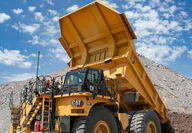
Enormous 140-metric-ton autonomous Cat trucks loaded with lithium-boron ore will be driving themselves around on the very first day of operations at ioneer Ltd.'s Rhyolite Ridge project in Nevada. Slated to begin operations in 2024, the Rhyolite Ridge Mine is expected to produce an average of 20,600 metric tons of lithium carbonate and 174,400 metric tons of boric acid annually for 26 years. Electric vehicle batteries are driving unprecedented demand for the lithium to be... Full story

Conditional loan signals a major step forward for ioneer's planned lithium-boron mine in Nevada. As part of the Biden administration's ongoing effort to support projects that will provide a domestic supply of the minerals and metals critical to America's transition to clean energy and transportation, the U.S. Department of Energy has committed to loaning ioneer Ltd. up to $700 million to develop the Rhyolite Ridge lithium-boron project in Nevada. "Rhyolite Ridge is a major...
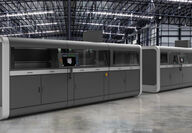
One of several frontrunners in the race for additive manufacturing prevalence, Desktop Metal Inc. has garnered a $9 million order from a major German automaker for its binder jet 3D metal printing systems to support digitally casted powertrain components for a popular car line. Founded in 2015 by leaders in advanced manufacturing, metallurgy, and robotics, Desktop Metal sought to address the unmet challenges of speed, cost, and quality to make additive manufacturing an...

To encourage greater transparency in the inevitable battery-powered world, Ford Motor Company has partnered with Everledger to deliver the world's first passport pilot for the responsible recycling of electric vehicle batteries. Founded in 2015, Everledger is an independent technology company that aims to help businesses monitor asset information with various security technologies, such as blockchain, artificial intelligence, smart labeling with near field communication (NFC)...

Coming together to build North America's clean energy and e-mobility future The shift away from the fossil fuels that powered the Industrial Revolution and transported humankind through the 20th century, and toward the clean energy technologies that will propel us into the future, has the world at an inflection point – the decisions we make on how to supply, use, and recycle the minerals and metals that are the basic building blocks of the Renewable Energy Revolution will s... Full story

Electric Vehicles require six times the minerals than their fossil fuel forebearers With even the most basic models boasting sophisticated driver-assist, navigation, infotainment, diagnostics, and other advanced digital systems being fed power from oversized versions of the lithium-ion batteries found in your laptop or smartphone, electric vehicles are becoming personal computers that you can drive. While this puts a whole new spin on the term mobile computing, riding around i... Full story
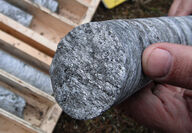
By 2030, batteries will likely need more than 5x all the graphite mined in 2021 While shortages of the lithium and nickel needed for electric vehicle batteries has dominated news headlines over the past year, the massive demand for graphite has largely been overlooked. As the primary ingredient in the anode side of lithium-ion batteries, graphite is the single largest element in lithium-ion batteries and the mining sector's inability to keep pace with skyrocketing demand of... Full story